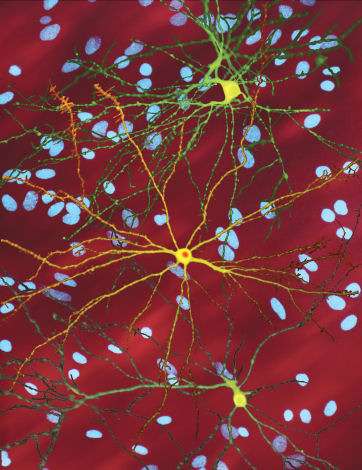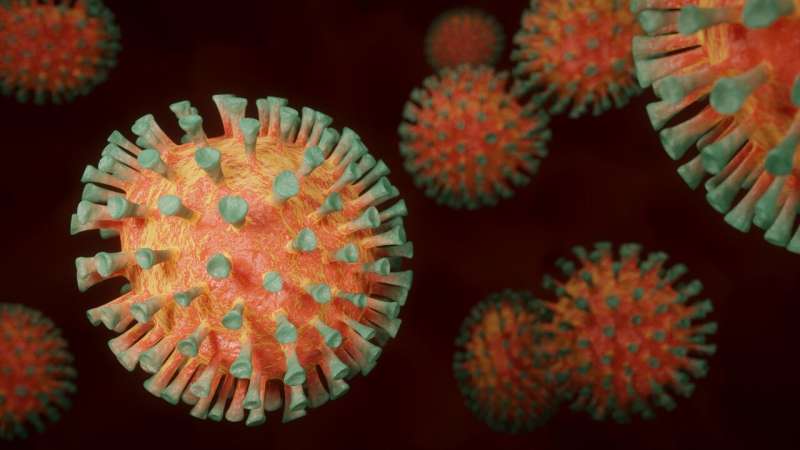New Findings Reveal Blood Vessel Cells in Atherosclerosis Share Tumor-Like Growth Patterns

A recent study reveals that cells in atherosclerotic blood vessels share genetic alterations from a single ancestral cell, resembling tumor growth patterns. This discovery offers new insights into the biological mechanisms of atherosclerosis and potential avenues for treatment.
Researchers from the University of Southern Denmark and Odense University Hospital have uncovered intriguing insights into the cellular composition of atherosclerotic blood vessels. Their study shows that many cells within diseased vascular tissue harbor the same genetic alterations, originating from a single ancestral cell that divided multiple times. This pattern resembles what is commonly observed in tumor development, where a genetic mutation in one cell leads to extensive cell proliferation.
In several patients examined, a significant portion of the cells derived from a single mutated cell that underwent numerous rounds of division. "It's striking how many cells in the tissue share the exact same genetic change. In some samples, over 10% of the cells, amounting to hundreds of thousands, carried the same mutation. This strongly suggests that these cells arose from a common ancestor with a genetic alteration during disease progression," explained Lasse Bach Steffensen, Associate Professor at the Department of Molecular Medicine.
Traditionally, atherosclerosis has been understood as a lipid-driven inflammatory disease involving cholesterol accumulation and immune responses, leading to plaque formation in blood vessels. The new findings, however, introduce a different biological perspective—indicating that cells in affected vessel walls may undergo extensive divisions and harbor genetic mutations similar to tumor biology.
While it remains unclear whether these genetic alterations directly influence disease progression, many affected genes could potentially alter cell behavior, impacting the development and stability of atherosclerotic plaques.
This discovery offers a new understanding of atherosclerosis—one of the leading causes of cardiovascular disease worldwide—by highlighting the possible role of clonal cell populations within diseased blood vessels. The study was conducted using tissue samples from patients undergoing vascular surgery, with DNA sequencing helping identify these genetic changes. The samples originate from a biobank established at Odense University Hospital, thanks to the collaboration of surgeons, nurses, biochemists, and donors.
Despite the promising insights, more research is necessary to determine the significance of these genetic alterations. The team plans to analyze tissue from additional patients to explore the relationship between mutation load, disease stage, and clinical outcomes, which could lead to new strategies for treatment.
Overall, these findings challenge the conventional view of atherosclerosis and open the door to innovative approaches targeting the genetic and cellular mechanisms underlying the disease.
Stay Updated with Mia's Feed
Get the latest health & wellness insights delivered straight to your inbox.
Related Articles
UK Researchers Achieve Breakthrough in Slowing Huntington's Disease Progression with Gene Therapy
UK scientists have achieved a historic milestone by slowing Huntington's disease progression through an innovative gene therapy, offering hope for future treatments and patient stability.
Health Authorities Issue Warning About Salmonella Outbreak Linked to Pistachio Cream
The CDC and FDA have issued a warning about a Salmonella outbreak linked to Emek-brand pistachio cream. Learn about the risks and safety precautions.
The Surprising Link Between Bacon, Feces, and Feelings of Disgust
Explore the fascinating psychological reasons behind why foods like bacon and feces evoke similar feelings of disgust, especially in vegetarians, and how this influences dietary choices.
Understanding How SARS-CoV-2 Continues to Evolve: Insights from Long-Term Lab Research
Recent long-term studies reveal SARS-CoV-2's remarkable ability to mutate, with recurring changes that can predict future variants and inform vaccine development.



